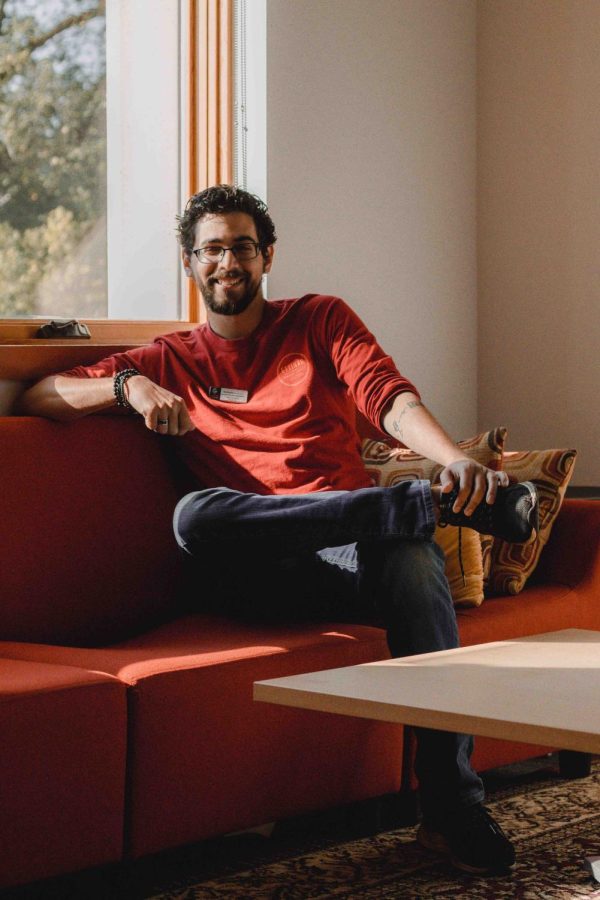Ettihad Cultural Center: ‘A source of connection and belonging’
Cassady Gilroy, operations manager for diversity and cultural engagement, acting center director for Ettihad Cultural Center this fall term of the 2023 school year. Has a natural affinity for working with international students due to being one himself and hopes students can find a sense of belonging here on campus or experience other cultures.
November 3, 2022
Ten years ago, Oregon State’s Ettihad Cultural Center was established out of tragedy.
Originally a student organization, the ECC was founded in the spring of 2012 as a response to the murders of Trayvon Martin and Shaima Alawadi. Despite this sorrowful catalyst, the center was named in the spirit of unity, as “Ettihad” translates to “unity” or “alliance” in a variety of languages, such as Arabic, Farsi, Hebrew and Urdu, according to the Diversity and Cultural Engagement website.
Since then, the ECC has become an important cultural resource center for students. It represents a wide range of communities, stretching from Africa to Central and South Asia.
Over the past decade, the center has provided support to students in several ways. According to acting center director Cassady Gilroy, the ECC has three primary responsibilities.
The first two responsibilities are community building and academic success. The center achieves this through its numerous student-led events every year, as well as being a conveniently located and quiet study location.
The spring Ettihad Cultural Festival is a popular example of a community-building event.
The ECC web page summarizes the festival as a celebration of “the immense diversity of the Ettihad community through music, dance, art, performances, traditional dress and amazing food.”
“It’s a very communal event,” Gilroy said. “It’s known across Corvallis, and even we have folks from Eugene and other parts of Oregon that come down just to see it.”
The third responsibility of the ECC is more delicate. Gilroy explained that during challenging times for students, the Ettihad Cultural center acts as “a space on campus that they can go to to feel like they have a sense of belonging.”
Gilroy cites the current protests in Iran as an example of such a situation.
He said that for some students, “It’s their first time here at OSU, they haven’t really met folks, all their friends and family are back in Iran.”
This is when the community at the ECC can “be there as a source of comfort” or “just a source to listen,” according to Gilroy.
In October of 2014, the center moved into its first of two homes on campus, Snell Hall 424. Less than a year later, in the spring of 2015, the ECC relocated to its second and current home which is on the third floor of the Student Experience Center.
The current location features a computer lab, quiet space, video games and even a library. Colorful art and decor can be seen all around the center, showcasing many cultures the ECC represents.
The Ettihad Cultural Center has seen immense growth since its inception over a decade ago.
Gilroy emphasized that the primary purpose of the center will always remain the same: To be a “source of connection and belonging for students on this campus—that would be the goal no matter how long Ettihad is here.”






